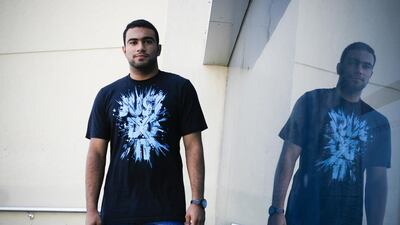ABU DHABI // Four years after the “Arab Spring” revolutions, the region’s youth say they are uncertain if democracy can ever work in the Middle East.
In previous years, the survey found a lack of democracy was seen as one of the biggest obstacles facing the Middle East.
Now, with the legacy of the Arab Spring waning, only 15 per cent of those polled believe this is the case – compared with 38 per cent last year, 43 per cent in 2013 and 41 per cent in 2012.
“In 2010, a year ahead of the epochal events of the Arab Spring, the Arab Youth Survey identified the simmering discontent among Arab youth, who were calling for a change in social order,” said Sunil John.
“Their single most important priority then was living in a democratic society,” he said. “Ninety-two per cent of the Arab youth polled in 2011 said ‘living in democracy’ was their most important desire.
“Now, just four years after the sweeping changes that some countries in the Arab world witnessed, during which many young people protested, fought and died, Arab youth are uncertain about whether democracy will ever work in the Middle East.”
Mahmoud Ashri, a Sudanese national living in Abu Dhabi, was among the sceptics.
“I think it is good the way it is,” said the 19-year-old, when asked whether a democracy would ever work in the Middle East.
Emirati Mohammed Romainthi said he did not support the idea of a democracy.
“Everything here is fine the way it is,” said the 21-year-old Emirati. “We have a ruling family here and I think our country is better off than democratic countries.”
Of those polled, 39 per cent agreed with the statement “democracy will never work in the region”, 36 per cent think it will work and the remaining 25 per cent are unsure.
Views on democracy vary significantly from country to country.
Youth in Yemen are most sceptical about it (61 per cent agree that democracy will never work), followed by Qatar (60 per cent), Saudi Arabia (59 per cent), Oman (52 per cent) and Tunisia (46 per cent).
The five countries most optimistic about democracy are Kuwait (58 per cent disagree that democracy could never work), Iraq (48 per cent), Libya (42 per cent), the UAE (44 per cent) and Palestine (36 per cent).
The study found that confidence the Arab Spring would bring positive change across the region was declining.
This year, 38 per cent agreed the Arab world was better off following the Arab Spring, compared with 72 per cent in 2012.
Of those polled in the survey, 300 respondents were from the UAE – 40 per cent living in Abu Dhabi, 40 per cent living in Dubai and 20 per cent from Sharjah.
jbell@thenational.ae
______________________________________________________________
About 3,500 youths aged 18 to 24 years old were polled in the Arab Youth Survey 2015. The survey, now in its seventh year, was conducted by Penn Schoen Berland in January and February and questioned male and female Arab nationals in 16 countries. They were questioned on the relationship between Arabic language and their national identity, employment and the potential success of democracy in the Middle East and which country they would prefer to live in.
For the complete findings visit the Arab Youth Survey website.
Read more:
■ Arabic language is losing value: Arab Youth survey
■ UAE remains top choice for Arab youths to live and work in'
■ Unemployment concerns prompting Arab youths to start businesses, survey finds

